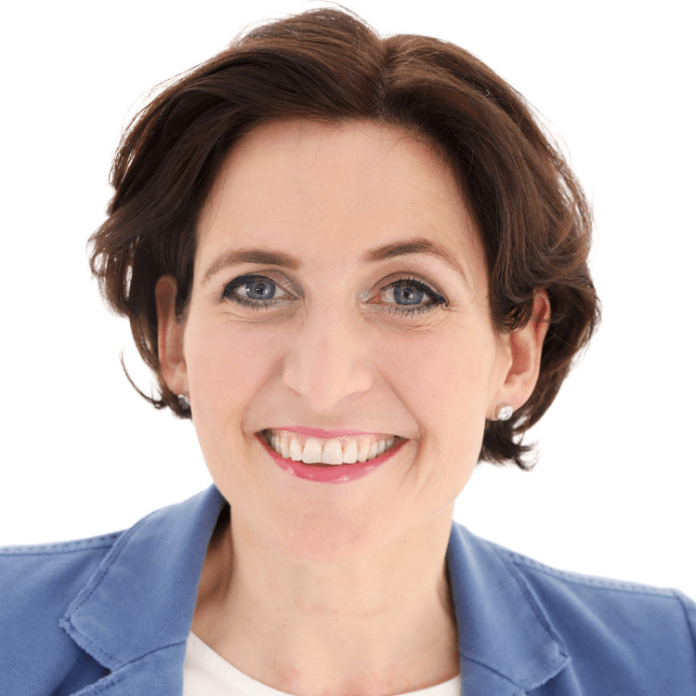When conflict kept her awake one night, Dr. Gabriele Lang had a powerful realization—if she could coach others through crisis, why not herself? That moment sparked the birth of UP’N’CHANGE, a platform designed to offer leaders instant, judgment-free support in high-pressure situations. With a doctorate in psychology and over 30 years of experience in international business and coaching, Dr. Lang is redefining how modern leaders approach stress, collaboration, and emotional intelligence—one breakthrough at a time.
What inspired you to start your coaching platform?
I was lying awake in the middle of the night, bothered by a conflict that wouldn’t let me sleep. My mind was spinning in circles. That’s when it hit me: I’m a brilliant coach helping others, why not start helping myself? The inspiration was clear: make support easy and accessible, 24/7, removing all barriers like “I have no money,” “no time,” “no one should know I’m getting help,” or “I don’t know who to turn to.” People need low-threshold access to support, especially in the moments they need it most.
That’s how UP’N’CHANGE was born, a platform to help people get “up” and “change,” turning conflict into a catalyst for momentum and helping leaders stop wasting time so they can lead with real impact.
Was there a moment in your career that changed how you saw conflict?
Absolutely. It was 2010. I was co-developing InnoSparker, an evaluation tool of UP’N’CHANGE to measure creativity potential in organizations, with two business partners. During a tense meeting, one of them suddenly blamed me for the conflict. I don’t know why, but something clicked. I stayed calm and responded: “All three of us are responsible for this conflict. If each of us owns their share of this conflict, we can launch this exceptional tool. Otherwise, we’ll fall off the cliff together and lose a year of work.”
That moment stayed with me; it was a turning point. And yes, we did move forward and create something valuable.
A second, deeply personal moment came in 2015. I was navigating a private conflict and realized I needed to learn how to get along with someone I deeply cared about, who responded to stress completely differently than I did.
What does progress look like to you, personally or professionally?
I sometimes ask myself: If I died today, what would I regret? Then I make sure I’m moving toward fulfilling my heart’s wishes both personally and in business.
Professionally, progress means scaling UP’N’CHANGE to realize my vision: to become the #1 source for easyHelp in tough situations and enable effective collaboration even under pressure. I envision a world where people work together effectively, equipped with practical tools that build resilience and strengthen teams.
To me, progress is like a growth spiral. First, you recognize there’s a problem. Then you dare to face it, explore solutions, test them, and move forward until the next challenge comes. It’s a lifelong journey of learning and evolving.
How do you help people move from stress or tension into clarity?
By asking questions without judgment, to truly understand what’s bothering them. Then I offer tools and techniques to shift from frustration and standstill into movement and relief. The key is to focus on one issue, not ten, so progress can be made quickly, yet with the right amount of care.
What do you wish more leaders understood about emotional intelligence?
That ignoring emotional intelligence comes at a high cost to time, energy, team morale, and organizational health. It doesn’t just impact productivity or innovation; it affects mental health, engagement, and even the joy of work. When emotions run high and go unmanaged, everyone feels it.
When things feel stuck in a team, where do you usually start?
I start by talking to individuals about what they are complaining about. What are they blaming others for? Then I look for the red thread that connects the stories. I identify who’s willing to take responsibility and who’s stuck in draining accusation loops or psycho-games.
It’s then my job to reflect on the pain of staying stuck versus the gain of moving forward and remind them they’re all in the same boat. If it sinks, everyone goes under.
What kind of transformation have you seen that made you feel proud?
Every transformation where a person learns to communicate more clearly, give critical feedback constructively, navigate barriers, or stay calm in tough negotiations fills me with pride.
I’ve also seen it in teams. When they’re standing at the edge of a cliff, metaphorically speaking, and manage to channel conflict into progress instead of falling off together, that’s incredibly motivating. Every step toward de-escalation is a win.
How do you stay resilient when you’re under pressure?
I need peace, no more input. I unload my thoughts onto paper, so I don’t forget anything. That’s why there’s always a notepad and pencil next to my bed, so I don’t have to get up when a spark hits. And I make sure to get enough sleep and exercise to recharge.
What’s one simple tool or mindset shift that always helps?
I ask myself: Is this issue truly worth the trouble to reach my goal, and can I influence it?
Fighting just to win is pointless. If it doesn’t help you move forward, it’s not worth the energy.
What’s the legacy you hope to leave through your work?
To leave a meaningful footprint by making this world a better place, one where people can use simple, effective tools to collaborate more easily in a world filled with complexity and conflict.














